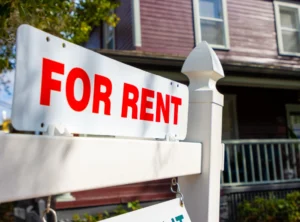
Preventing Fair Housing Violations: A Proactive Approach to Stopping Harassment Before It Starts
In property management, ensuring a safe and respectful living environment isn’t just about reacting to problems—it’s about preventing them before they arise. Illegal harassment by employees or contractors can lead to fair housing complaints, legal consequences, and damage to a company’s reputation. Rather than waiting for issues to surface, housing providers must take a proactive approach to prevention.
By implementing strong policies, educating all staff and contractors, and fostering a culture of accountability, property management companies can significantly reduce the risk of harassment and discrimination claims.
Education and Training: The First Line of Defense
One of the biggest mistakes a housing provider can make is assuming that fair housing compliance is “common sense.” Every employee, from leasing agents to maintenance workers, and every contractor who interacts with residents needs proper training on:
- What constitutes illegal harassment under the Fair Housing Act.
- How to handle resident interactions professionally and respectfully.
- The importance of cultural sensitivity and inclusive communication.
- The consequences of non-compliance for individuals and the company.
Annual training sessions should be mandatory for all employees. Additionally, housing providers should offer refresher courses when policies are updated or when incidents indicate a need for further education.
Establishing Clear Policies and Expectations
Setting clear expectations ensures that everyone—employees, contractors, and residents—understands what is acceptable and what is not. Housing providers should:
- Develop and distribute an anti-harassment policy outlining prohibited behaviors.
- Require written agreements with contractors that include adherence to fair housing policies.
- Implement a zero-tolerance stance on discrimination and harassment.
- Communicate clear reporting procedures for residents and staff.
By putting these policies in writing and enforcing them consistently, companies create a structure that prioritizes respect and compliance.
Creating a Culture of Accountability
Preventing fair housing violations is not just about policies—it’s about culture. A property management company that fosters accountability and respect will naturally have fewer fair housing complaints. This starts with leadership.
Managers should:
- Model respectful behavior in all interactions.
- Regularly discuss fair housing and anti-harassment policies in team meetings.
- Conduct spot-checks or resident surveys to gauge experiences with staff and contractors.
- Hold all employees and contractors accountable for violations—no exceptions.
If complaints arise, management must act swiftly to investigate and remedy the issue. Failure to take reports seriously sends a dangerous message that harassment is tolerated.
Strengthening Contractor Oversight
One common misstep in property management is assuming that because a contractor is not an employee, their behavior is not the company’s responsibility. However, under fair housing laws, housing providers are still liable if a contractor harasses a resident.
To prevent contractor-related violations:
- Review your fair housing policies and procedures with contractors.
- Encourage residents to report issues involving anyone they interact with on the property.
- Take immediate action if a contractor’s behavior is inappropriate, working with their company to find a resolution.
Housing providers must ensure that every individual on site—whether an employee or contractor—understands and follows fair housing laws.
Encouraging a Safe Reporting Environment
A proactive approach isn’t just about stopping harassment before it happens—it’s also about ensuring that when concerns arise, residents and staff feel safe reporting them.
To create an open and fair reporting process:
- Make it easy for residents to report issues through multiple channels (e.g., online forms, anonymous hotlines, or direct contact with management).
- Assure residents that their complaints will be taken seriously and investigated.
- Train managers and supervisors to handle complaints professionally and without bias.
- Remind all employees that retaliation is illegal and will not be tolerated.
When residents and employees feel comfortable reporting concerns, housing providers can address problems early, before they escalate into major legal issues.
Final Thoughts: Prevention is Protection
In today’s property management industry, waiting until a fair housing complaint arises is too late. Housing providers must be proactive, not reactive, in preventing illegal harassment. Through comprehensive training, clear policies, strong leadership, contractor oversight, and a safe reporting culture, companies can create communities where respect, compliance, and fairness are the standard.
By investing in prevention, housing providers protect their residents, their employees, and their company’s reputation—ensuring that fair housing compliance isn’t just a requirement, but a core value.













 Accessibility
Accessibility